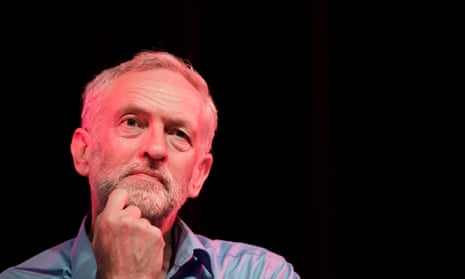There is a new phenomenon in politics or perhaps the revival of an old one. But whatever it is, it is powerful. Someone said to me the other day re Corbyn mania: “You just don’t get it.” I confess they’re right. I don’t get it, but I’m trying hard, and I read with care Rosie Fletcher’s passionate piece in praise of Jeremy Corbyn in last week’s Observer.
The Corbyn thing is part of a trend. So Donald Trump leads the field of Republican candidates with thousands at his meetings, despite remarks about women and Mexicans that you might think would be a disqualification in a nation where half the voters are women and Latinos, the fastest growing group of voters.
Bernie Sanders is wowing the Democrats on a platform that wouldn’t carry more than a handful of states. The SNP win a landslide in Scotland after the collapse of the oil price means that the course they advised the Scottish people to take last year would have landed the country in the economic trauma unit.
The former Greek prime minister led in the polls on a bailout programme significantly harsher than that of the government he put out of office precisely on the issue of the bailout. Marine Le Pen rides high in France advocating an extreme nationalism combined with a quasi-socialist economic policy, with small business appeal, when, let us say, the historical precedents for such a combination aren’t exactly comforting.
There is a politics of parallel reality going on, in which reason is an irritation, evidence a distraction, emotional impact is king and the only thing that counts is feeling good about it all.
So when people like me come forward and say elect Jeremy Corbyn as leader and it will be an electoral disaster, his enthusiastic new supporters roll their eyes. Neil Kinnock, Gordon Brown and I have collectively around 150 years of Labour party membership. We’re very different. We disagree on certain things. But on this we’re agreed.
Anyone listening? Nope. In fact, the opposite. It actually makes them more likely to support him. It is like a driver coming to a roadblock on a road they’ve never travelled before and three grizzled veterans say: “Don’t go any further, we have been up and down this road many times and we’re warning you there are falling rocks, mudslides, dangerous hairpin bends and then a sheer drop.” And the driver says: “Screw you, stop patronising me. I know what I’m doing.”
In the Alice in Wonderland world this parallel reality has created, it is we who are backward looking for pointing out that the Corbyn programme is exactly what we fought and lost on 30 years ago, not him for having it.
So apparently Ed Miliband lost in May not because he was too left wing but because he was not too anything. Thus the public wasn’t “inspired” and so voted Tory. This again is absolutely familiar to students of Labour’s past (oops, there I go again).
I have analysed all the different published polling and focus group evidence about Labour’s defeat, most recently the one by the BBC’s Newsnight and the one by Jon Cruddas. They all say the same. Labour lost because it was considered anti-business and too left; because people feared Ed in Downing Street with SNP support; and because he didn’t have a credible deficit reduction plan. They didn’t vote Tory because they thought he was “austerity-lite” but on the contrary because he didn’t seem committed enough to tough economic decisions.
That is the evidence.
Does this make any difference to the Corbynistas? Absolutely not.
If you’re angry about welfare cuts, then two things are obvious: those are cuts to programmes Labour introduced, and we only introduced them by being in power.
So it is completely illogical to oppose them without understanding how best to get back into power, since in opposition we can do nothing.
Someone else said to me: “If you’re writing something again, don’t blah on about winning elections; it really offends them.” It would actually be quite funny if it weren’t tragic.
The explanation for this parallel reality is something to do with people feeling empowered by their ability through it, to “fight back” against “the system”, the traditional ways of thinking about politics with all its compromises, hard decisions and gradual increments. It is the clarity of full-throated opposition versus the chin-stroking nuance of: “What would we do if we were in government?”
It’s a revolution but within a hermetically sealed bubble – not the Westminster one they despise, but one just as remote from actual reality. Those in this bubble feel good about what they’re doing. They’re making all those “in authority” feel their anger and their power. There is a sense of real change because of course the impact on politics is indeed real. The Labour party is now effectively a changed political party over the space of three months.
However, it doesn’t alter the “real” reality. It provides a refuge from it. Because Trump and Sanders aren’t going to be president; Scotland did vote No and even if it votes Yes in the future, the pain of separation for all of us will be acute; Syriza may win but only by switching realities; and Jeremy Corbyn is not going to be prime minister of the UK. And Le Pen as French president? Let us hope not because that collision with “real” reality will be brutal for all of Europe.
But people like me have a lot of thinking to do. We don’t yet properly understand this. It is about to transform a political institution we spent our whole lives defending. But it is part of something much bigger in politics.
Because it is a vast wave of feeling against the unfairness of globalisation, against elites, against the humdrum navigation of decision-making in an imperfect world, it persuades itself that it has a monopoly on authenticity. They’re “telling it like it is”, when, of course, they’re telling it like it isn’t.
So the question is: what to do? Do we go full frontal and take it on or do we try to build a bridge between the two realities?
I don’t know. But the answer will preoccupy the Labour party for years to come, provided that the space to examine it is permitted.

